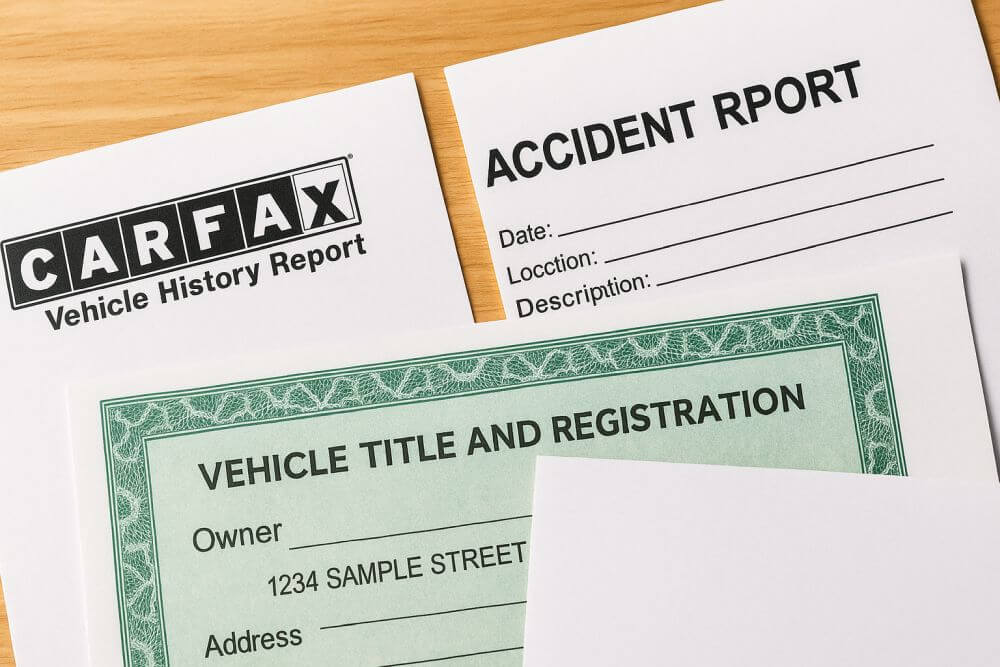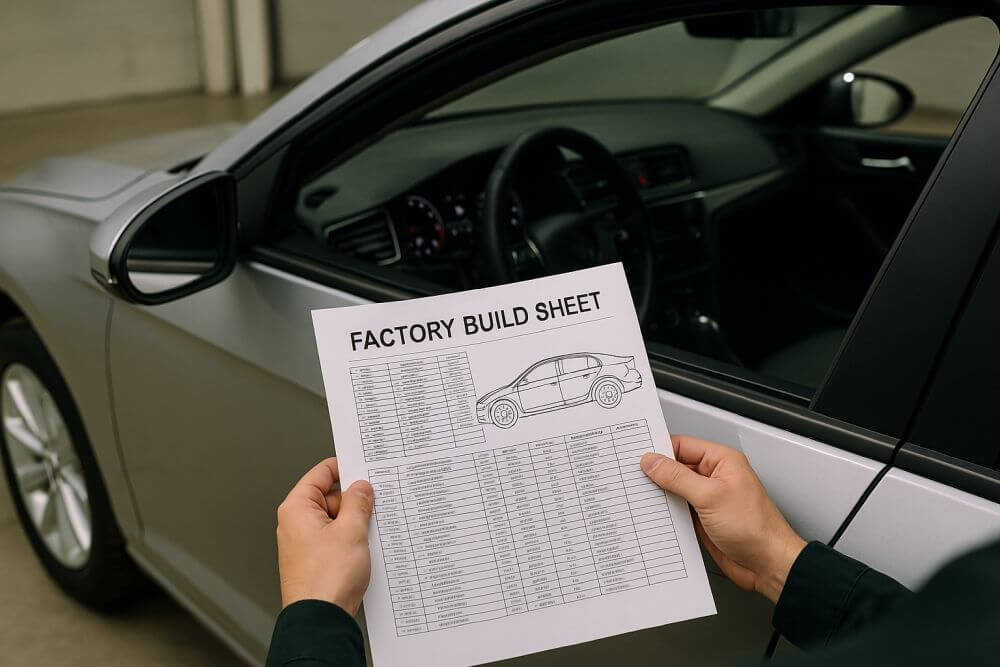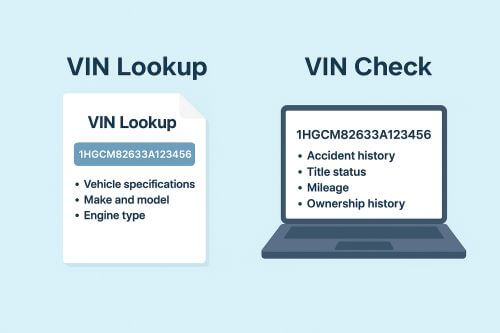When you’re buying a used car, checking its history is a must—but relying solely on Carfax may not give you the full picture. Carfax is one of the most well-known sources for vehicle history reports, but it doesn’t always capture everything. From unreported accidents to title fraud and odometer rollbacks, there are important details that may never appear in a Carfax report.

In this guide, we’ll break down what Carfax includes, what it often misses, and how to get a more complete vehicle history using tools like VinCheckPro and the NMVTIS database.
What Does a Carfax Report Include?
Carfax pulls data from DMVs, insurance companies, service centers, and repair facilities. A paid Carfax report typically includes:
-
Accident history (if reported)
-
Title status (clean, salvage, rebuilt, flood, lemon)
-
Ownership history (number of owners, personal or commercial use)
-
Odometer readings (if recorded)
-
Service and recall records (if submitted by service centers)
While this information is valuable, it is not always complete. Here’s what could be missing.
What Carfax Might Not Tell You
Unreported Accidents
-
Not all accidents are reported to insurance or the DMV
-
Repairs paid for out-of-pocket may not appear on any report
-
Cosmetic or structural damage can go undocumented
Title Washing and Hidden Ownership Issues
-
Vehicles with branded titles (salvage, flood, etc.) may be re-registered in different states to hide their history
-
Carfax may not detect every title discrepancy
-
Reports may show only a single state’s title history
Odometer Rollbacks
-
Carfax relies on recorded odometer readings
-
Some sellers alter odometers before registering or servicing the vehicle
-
Gaps between service records can hide discrepancies
Flood Damage
-
Flooded cars often move across state lines to hide damage
-
If no insurance claim was filed, flood repairs may go unreported
Commercial, Rental, or Fleet Use
-
Ride-share, rental, taxi, or police use may not be disclosed
-
These vehicles may experience more wear and tear than private-use cars
How to Get a More Complete Vehicle History Report
1. Use a Free Carfax Alternative Like VinCheckPro
VinCheckPro provides a free VIN check and includes:
-
Title records from multiple states
-
Salvage auction history
-
Total loss indicators
-
Odometer discrepancies
-
Equipment and trim-level decoding
This is a great way to cross-reference what Carfax may miss.
2. Check NMVTIS (National Motor Vehicle Title Information System)
NMVTIS is a government-operated database that tracks vehicle titles, junk, salvage, and insurance loss records across states. It is often more accurate and up-to-date than private services.
Several NMVTIS-approved providers offer detailed reports.
3. Use Multiple VIN Tools
No single tool is perfect. Combine data from:
-
VinCheckPro for free reports
-
NICB VINCheck for theft and insurance loss checks
-
NHTSA’s recall lookup for manufacturer safety recalls
How to Run a Free VIN Check Before Buying a Used Car
- Locate the VIN on the dashboard (driver-side), door jamb, or vehicle registration documents
- Visit VinCheckPro.com and enter the VIN to begin your free report
- Compare results with other platforms like NICB and NMVTIS
- Look for warning signs like mismatched odometer data or multiple title brands
- Review NHTSA.gov for open recalls using the VIN
Carfax vs. Free Alternatives: Which Is Better?
| Feature | Carfax (Paid) | VinCheckPro (Free) |
|---|---|---|
| Reported Accident History | Yes (based on insurance & service data, if reported) | Limited (only if available via auctions or public records) |
| Title Brand Alerts | Yes (salvage, flood, rebuilt, etc., based on DMV data) | Yes (multi-state title branding checks via NMVTIS and other sources) |
| Odometer Check | Yes (includes odometer readings if reported by service/DMV) | Yes (flags discrepancies based on auction & title records) |
| Flood or Salvage Detection | Yes (if reported through insurance or title branding) | Yes (cross-checked with NMVTIS, auctions, and salvage sale listings) |
| Commercial/Fleet Disclosure | Sometimes (may show if disclosed by previous owner/fleet service) | Limited (less emphasis on use type, depends on available data) |
| Ownership History | Yes (shows number of owners, length of ownership, use type) | Partial (only when included in title/state records or auction data) |
| Service and Maintenance Records | Yes (if reported by partner service centers) | No (does not include maintenance data) |
| Recall Information | Yes (basic NHTSA and manufacturer-reported recalls) | Yes (basic NHTSA and manufacturer-reported recalls) |
| Cost | Paid (typically $39.99+ per report or multi-pack deals) | Free (limited report); paid upgrades may be available for full reports |
Final Thoughts
Carfax is a good starting point for understanding a vehicle’s background—but it should never be your only source of truth. Many used cars come with hidden risks that a single report might not uncover, including unreported accidents, title manipulation, flood damage, and odometer rollbacks.
To protect yourself from costly surprises, take a layered approach:
-
Use VinCheckPro as a free Carfax alternative to check for salvage records, multi-state title issues, and auction data
-
Check NMVTIS (the federally backed title database) for a more complete picture
-
Verify with NICB to see if the vehicle has been reported stolen or declared a total loss
-
Compare reports from multiple tools to catch inconsistencies and red flags
Buying a used car is a major financial decision. With the right research tools and a few extra steps, you can make a confident purchase—without second-guessing what might be hiding under the hood or behind the title.


